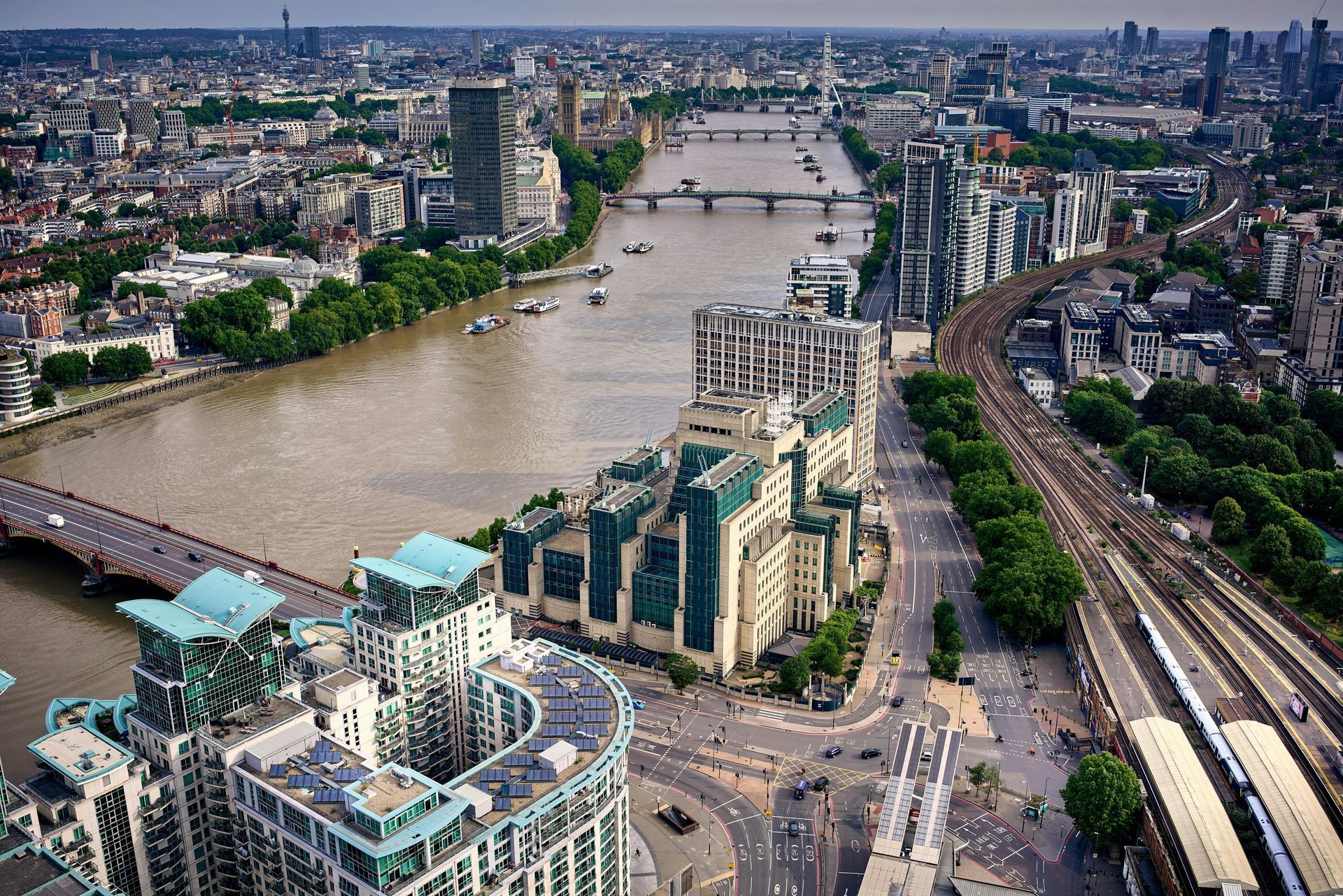The UAE: 2025’s Top Wealth Magnet for Millionaires
February 7, 2025

In 2025, the UAE is set to solidify its reputation as the ultimate destination for wealth, attracting an estimated 6,700 millionaires to its shores. This surge in high-net-worth individuals (HNWIs) is positioning the UAE as the premier global hub for the affluent, surpassing long-established wealth centres like the UK and the US. If you’re looking to relocate to Dubai or invest in the region, now is the perfect time to look at the opportunities it has to offer.
Contact Us
What are the benefits of moving to the UAE?
The UAE has become the go-to location for millionaires, and it’s not hard to see why:
Tax Benefits:
With no income tax and no inheritance tax, the UAE has a compelling financial advantage. If you are looking to maximise your wealth, these tax policies provide a rare opportunity to preserve and grow your assets.
Lifestyle Excellence:
Cities like Dubai and Abu Dhabi offer an exceptional lifestyle, from world-class healthcare and top-tier international schools to luxury living and fine dining. Whether you're interested in high-end real estate or enjoying a cosmopolitan lifestyle, the UAE delivers in every aspect.
Stability and Security:
In a world where economic and political volatility are increasingly common, the UAE’s robust political stability and thriving economy offer peace of mind. For those seeking a secure environment for both their wealth and family, the UAE stands as a beacon of certainty.
The Impact on the Economy
As more millionaires relocate to Dubai and other cities, the economic impact is clear:
Real Estate Demand:
Luxury property prices in Dubai have already seen a 10% rise in 2024, and with more HNWIs moving to the UAE, demand for high-end real estate will continue to grow. This makes the UAE an attractive location for both investment and personal residence.
Sector Growth:
Industries such as financial services, hospitality, and luxury retail are all expanding rapidly. With more wealth coming into the region, these sectors are being reinforced to meet the needs of the growing affluent population.
Wealth Management Expansion:
As millionaires settle in the UAE, the demand for sophisticated wealth management solutions is increasing. This provides unique opportunities for financial planners and wealth managers to help you optimise your portfolio in a tax-advantaged environment.
The Challenges Ahead
The rapid influx of wealth does come with its challenges:
Infrastructure Strain:
As more millionaires relocate, the pressure on the UAE’s infrastructure intensifies. From transportation to housing, ensuring that the region can accommodate this growing population is a key focus for local authorities.
Environmental Impact:
As urbanisation accelerates, sustainable growth practices will be critical to minimising the environmental footprint. The UAE is already taking steps to address this, but managing growth responsibly remains an ongoing challenge.
Social Equity:
With wealth flowing into the region, the potential for inequality exists. It’s essential for policies to address this disparity, ensuring that the economic benefits are shared broadly while maintaining the UAE’s global competitiveness.
Conclusion
The UAE is well on its way to becoming the world’s foremost destination for wealth in 2025. Whether you’re considering relocating to Dubai, diversifying your investments, or looking for tax-efficient wealth planning solutions, the UAE’s combination of stability, tax advantages, and high-quality lifestyle options makes it an unparalleled choice. For those serious about securing their financial future and enjoying a prosperous life in one of the world’s most dynamic economies, now is the time to act.
The UAE’s rise as a wealth magnet underscores its strategic appeal. If you’re considering relocating or investing in the UAE, reach out for expert financial advice.

Introduction More wealthy UK residents are exploring life overseas ahead of the 2026/27 tax year. Higher UK taxes, political uncertainty and a desire for a different way of living are all pushing people to look at alternatives. Four destinations stand out for high-net-worth UK individuals as at late 2025: 1. United Arab Emirates (Dubai) 2. Portugal 3. Switzerland 4. Malta Each offers a different blend of tax advantages, residency options and lifestyle. United Arab Emirates (Dubai) - Dubai is now the default choice for many UK entrepreneurs and professionals. Tax For individuals, there is currently no personal income tax on salaries, bonuses or most investment income, and no local capital gains or inheritance tax regime for individuals. There is VAT and a developing corporate tax regime, but personal tax remains far lighter than in the UK. The UK–UAE double tax treaty helps reduce the risk of the same income being taxed twice and needs to be considered alongside UK residence rules. Residency Common routes for UK nationals include: Employer- or company-sponsored residence visas Remote-worker visas for those employed or self-employed abroad Long-term “golden” style visas linked to investment, property or professional status Retirement options for over-55s. (All require private health insurance and periodic renewal.) Lifestyle Dubai offers a high standard of living, excellent connectivity and a large, well-established British community. Housing and schooling are expensive and the lifestyle can encourage overspending, but for many the tax position and opportunity outweigh the costs. Best for: Maximising net income and building or scaling a business in a dynamic, international city. Portugal - Portugal appeals to those who want EU residency, a milder climate and a slower pace of life. Tax The old NHR regime has closed to new applicants and been replaced by a newer incentive framework (often referred to as IFICI) aimed at certain professionals and activities. The UK–Portugal tax treaty reduces double taxation, and Portugal does not operate a classic wealth tax, though property-related charges can apply. (It's signed and ratified but not yet fully in force as of early 2026, which may slightly affect immediate tax planning). Residency Post-Brexit, common routes for UK nationals include: D7 visa – for those with sufficient passive income (pensions, investments, rentals). D8 / Digital Nomad visa – for remote workers with qualifying income from abroad. Work and other residence visas tied to employment or specific skills. These can lead to long-term residence and, ultimately, citizenship if physical presence and integration tests are met. Lifestyle Cost of living is generally below the UK (though higher in central Lisbon and the Algarve), English is widely spoken in cities, and the public and private healthcare systems are well regarded. There are large British and wider international communities. Best for: Those wanting EU residence, good quality of life and a balance of tax and lifestyle advantages. Switzerland - Switzerland attracts UK families who prioritise security, discretion and top-tier services. Tax Tax is set at federal, cantonal and communal level, so overall rates vary widely by canton. Well-chosen cantons can be very competitive for both individuals and companies. Private capital gains are not generally taxed, but there is an annual wealth tax on net assets, with rules depending on location. For suitable non-working individuals, some cantons still offer lump-sum (forfait) taxation, where tax is based on living costs rather than worldwide income, subject to minimum levels and conditions. Residency As non-EU nationals, UK citizens use: B permits – time-limited residence, often linked to work L permits – short-term residence for specific assignments C permits – longer-term settlement after sustained residence and integration Wealthy retirees and non-working individuals may be able to obtain residence based on financial self-sufficiency and, in some cantons, lump-sum taxation. Lifestyle High costs are offset by excellent infrastructure, schools and healthcare (with compulsory private health insurance). International communities are strong in Zurich, Geneva and other cities, though social life can feel more formal than Southern Europe. Best for: Those seeking stability, discretion and first-class public services and education, rather than the lowest day-to-day costs. Malta - Malta is a compact EU state with a very familiar feel for UK nationals: English is an official language and the legal and business environment is comfortable for British professionals. Tax Malta’s tax system and UK–Malta treaty can be particularly attractive where you hold significant foreign-source income. Under the Global Residence Programme, qualifying individuals can pay a favourable flat rate on foreign income remitted to Malta, while foreign capital gains kept offshore are generally not taxed in Malta. There is no separate wealth tax and no classic inheritance tax, though duties may apply to certain Maltese assets. The separate “golden passport” (citizenship by investment) route has been struck down by the EU’s top court, but residence programmes remain available. Residency Options for UK citizens include: Employer-sponsored Single Permits combining work and residence The Global Residence Programme for financially self-sufficient individuals meeting property and minimum tax thresholds Digital-nomad-style visas for remote workers Long-term residence after several years of compliant stay Lifestyle Costs (especially rent and property) are typically lower than in the UK outside the most fashionable areas. English is widely used in government and business, healthcare is solid, and London is only a short flight away. Best for: Those wanting an English-speaking EU base with favourable treatment of foreign-source income and a tight-knit expat community. How to decide & next steps - All four countries can work extremely well for UK high-net-worth individuals, but for different profiles: Choose Dubai if your priority is low personal tax on active income and you are comfortable with a high-energy city. Choose Portugal if EU residency, climate and lifestyle matter as much as tax. Choose Switzerland if stability, education and healthcare are at the top of your list. Choose Malta if you want an English-speaking EU base with flexible options for foreign income. The right answer depends on your overall wealth, income mix, family plans and how tied you remain to the UK. If you would like bespoke, confidential advice on whether remaining UK-resident or relocating to Dubai, Portugal, Switzerland or Malta is the better strategy for your situation, you are welcome to get in touch to explore your options in detail.

